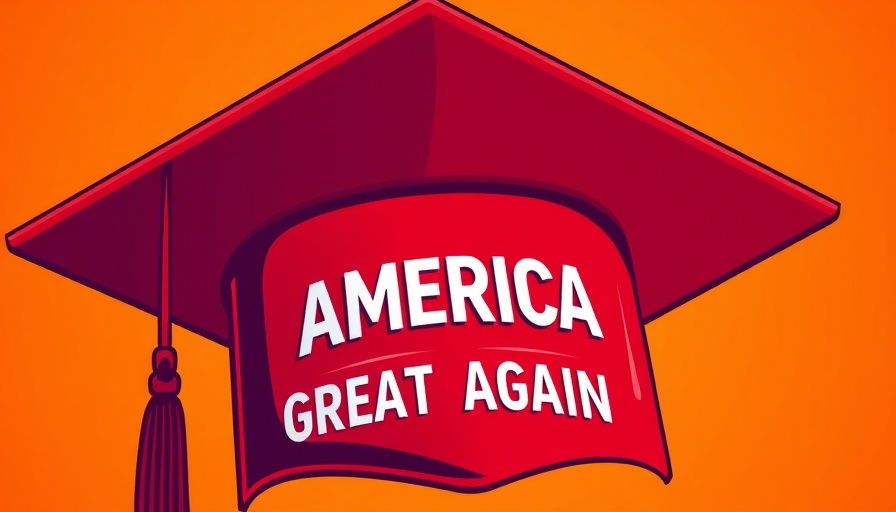
The Reckoning Over Higher Education’s Role in Society
In recent years, a charged debate has emerged around the role of American universities in shaping societal thoughts, values, and future leaders. The intersection of politics and education has come to the forefront, especially as influential figures, like former President Donald Trump and Ohio Senate candidate J.D. Vance, publicly criticize universities for purportedly fostering political correctness and ideologies they see as harmful. This resurgence of anti-academic sentiment raises critical questions about the future of educational institutions.
Why Universities Are Under Fire
Universities have traditionally been venues for diverse thoughts and discussions. However, critics argue that they have become indoctrination centers that stifle free speech. The essence of their argument hinges on the belief that some academic ideologies are disconnected from the realities businesses face. Vance’s narrative suggests that the academic bubble does not align with the working class's concerns, particularly in regions like the Rust Belt, where economic struggles are most palpable.
The Impact on Young Minds
With the escalating focus on this narrative, students are left to navigate an increasingly polarized environment. The emphasis on ideological purity within academic settings can lead to a suppression of differing viewpoints. For young minds, this can limit critical thinking and open dialogue essential for personal and professional growth. As students enter the workforce, their ability to engage with varied perspectives may be hindered, potentially impacting corporate culture and innovation.
Business Perspectives: A Look at Employment Trends
The business community is not immune to the ripples caused by prevailing academic ideologies. Many employers are watching employment trends closely, particularly as they pertain to soft skills shaped by higher education. Those involved in Silicon Valley startups, for instance, understand the crucial role of diversity in driving innovation. The tech industry has extensively benefited from different backgrounds and perspectives, igniting conversations around workforce diversity and corporate responsibility.
Counterarguments: The Value of Higher Education
Not everyone agrees with the viewpoint that universities foster negativity. Many believe that higher education plays an essential role in preparing students for a competitive job market. Degrees are not only pathways to professions but also instil a sense of social responsibility and a broader understanding of global issues. In sectors like sustainability and green business, academic research drives breakthroughs that benefit society at large.
Future Directions: How to Foster Bridge Building
As we look forward, universities must find a path to cultivate dialogues that include diverse viewpoints without falling prey to extremism. It is essential for academic institutions to engage with local businesses and communities, forging partnerships that can enhance the relevance of education while providing students with real-world experience. Initiatives that prioritize corporate partnerships can revive the purpose of higher education in both preparing students for the workforce and addressing local economic challenges.
Call for a Balanced Approach
Moving forward, what is clear is the pressing need for a balanced approach that honors academic integrity while addressing societal concerns. Fostering a culture that emphasizes both critical inquiry and openness can bring about an educational environment where all voices are heard. This approach might not only impact current academic policies but can significantly alter the landscape of American business and governance structures.
The ongoing dialogue about higher education's impact must continue, reflecting the values of society and preparing future leaders to engage with empathy, integrity, and informed judgment. One can only imagine how the intersection of academia and business will evolve but ensuring that both entities communicate effectively is pivotal for future generations.
 Add Row
Add Row  Add
Add 



Write A Comment